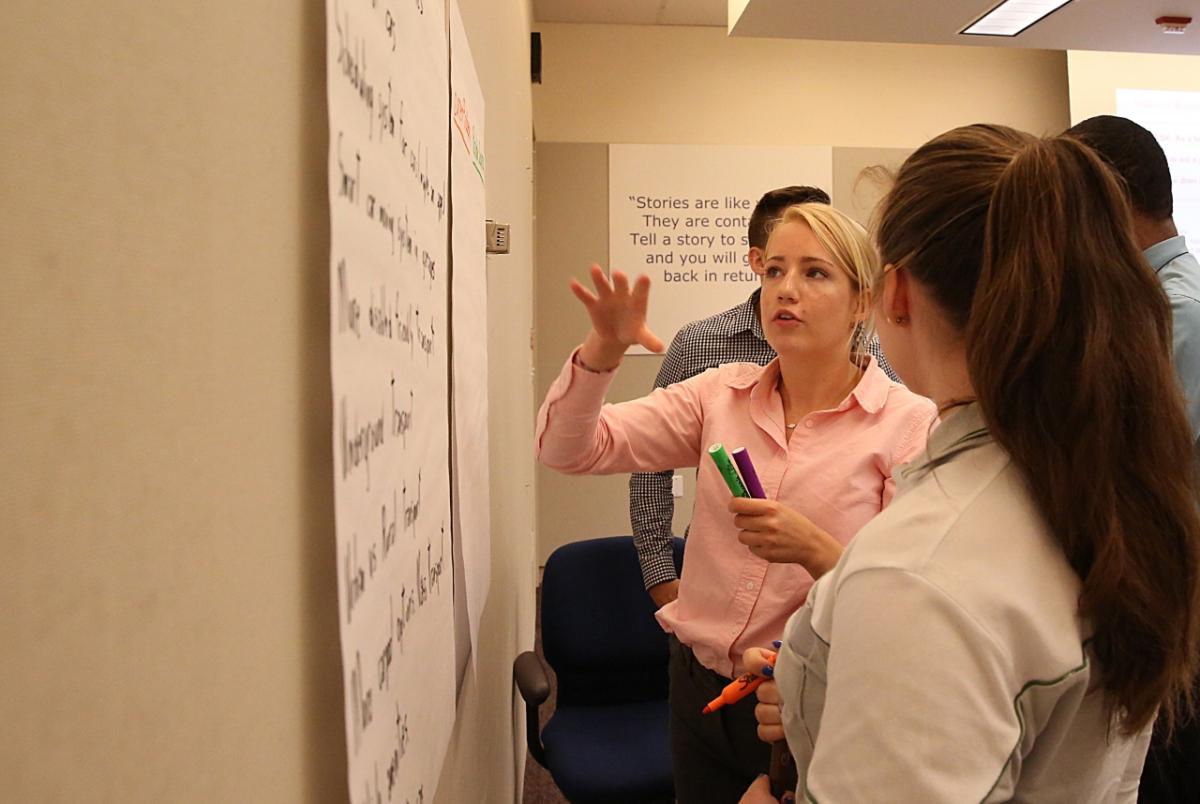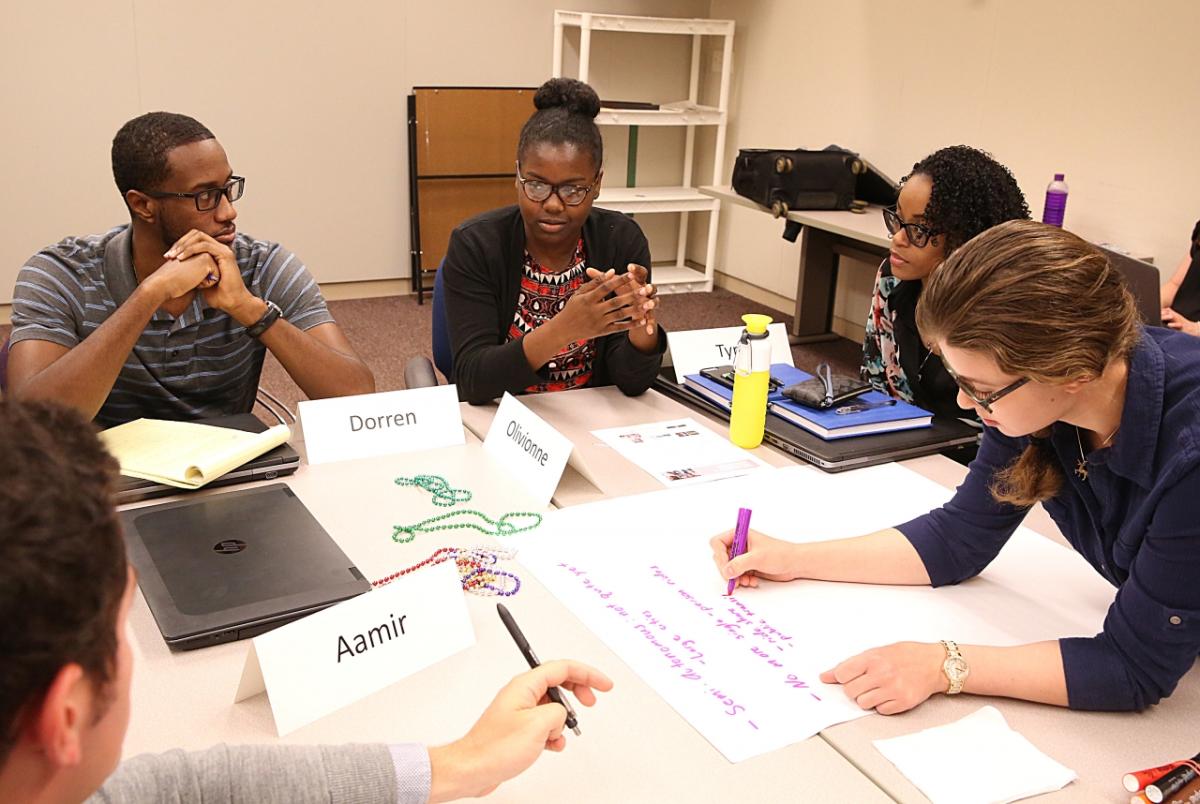Who Says Materiality Can't Be Fun?
How Interns Informed FCA’s Materiality Diagram
Each year at FCA, we put on our creative hats to explore what matters most to the Company, to our stakeholders and to the world in general. This analysis of “materiality” takes many forms: we conduct an online global survey; we benchmark automotive competitors and leading firms from other sectors; we evaluate input from key stakeholders with whom our employees work on a regular basis; we look at global trends and risks. The information we glean from these efforts helps us prioritize our sustainability activities and reporting, as well as set targets to address the material topics that have been identified.
While many of our stakeholder activities are repeated annually for year-over-year tracking, we often try new, unique ways to probe materiality, with a view toward uncovering potential themes that are not yet fully on our radar.
In fact, right now we are running one of our annual surveys and would welcome your feedback. Click here to start this 5-question survey.
Earlier this year, we turned to our student interns for a fresh look on two critical topics: the future of mobility and human rights in the supply chain. Workshops held in our U.S. technology center served a two-fold purpose: our interns learned about sustainability at FCA, and we, in turn, furthered our understanding of the economic, environmental and social impacts that the company and its stakeholders are facing. To make things more interesting for all involved, the two events were structured around role-playing.
“Student interns represent a rich cross-section of constituents: they are members of our workforce during their internship; they are consumers; they are part of the academic community; and they are future leaders in the public and/or private sectors,” said Bill Hall, Director of Sustainability – FCA US. “Bringing together a roomful of energetic, inspired, and purpose-driven interns resulted in a plethora of impassioned opinions and discussion.”
At the first event, the students broke into teams of five, with each assuming the identity of a major player in the automotive eco-system: manufacturer, technology or mobility service provider, utility company, community leader and consumer. The challenge? Identify what the business of moving people and goods will look like in 2025 from a variety of perspectives, and evaluate how mobility can more explicitly benefit society.
The teams presented a diverse set of ideas focused on bringing affordable, accessible, efficient, safe and enjoyable mobility to a broader consumer base, while easing urban congestion. Among the concepts that were explored were autonomous and connected vehicles, shared rides, partial ownership, electrification and the subscription model.
The second workshop consisted of interns working in our Purchasing and Supply Chain Management organizations, whose challenge was the topic of responsible sourcing, specifically related to the safety and integrity of the global supply chain with respect to potential human rights issues. Our interns learned that FCA believes the responsible procurement of raw materials for our vehicles is essential, even if the source of the raw material is several tiers removed in our supply chain. By taking on the roles of automaker, Tier 1 supplier, sub-Tier supplier, nonprofit organization and worker, the students examined a multi-stakeholder approach to this issue that involves a collaborative effort among the various industries, regulatory agencies, non-government organizations, customers, and suppliers.
FCA’s intern sustainability activities concluded with the interns responding to our brief online materiality survey. The results of the survey – combined with the themes we heard in the workshops – will help shape our sustainability direction and targets. If you didn’t do so above, you are invited to complete the survey – we welcome your opinion! Click here to start this 5-question survey.



